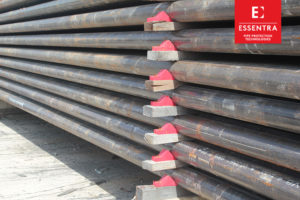[vc_row][vc_column][vc_column_text]Despite slumping crude oil prices and a crippling downturn in the oil and energy industry that has hit the industry particularly hard, there are signs that the worst is over, prices have bottomed out and recovery is on the way.
In no place are the signs more prevalent than the Gulf of Mexico. Analysts predict that deepwater oil production in the gulf will expand to unprecedented numbers. Crude oil production is projected to peak at 1.5 million barrels by 2016 – a record high previously matched in 2009.
Considering that we are only five years removed from the Deepwater Horizon incident that killed 11 workers and released millions of crude oil into the Gulf in one of the worst environmental disasters in U.S. history the growth rate is even more impressive. Despite triggering temporary moratoriums on offshore drilling and stricter regulatory requirements, the Deepwater Horizon incident has not curbed exploration and drilling in the Gulf, five years later.
According to the Bureau of Safety and Environmental Enforcement, the number of permits for deepwater drilling increased from just 14 in 2010 to 603 in 2014.
In a way, this growth shouldn’t come as much of a surprise. Unlike shale production which lean heavily on crude oil prices for revenue, deepwater drilling are activities that are not as affected by the fluctuating oil markets, focusing on the long-term instead.
With six new deepwater projects set to become operational by this year which will boost output by nearly 177,000 barrels per day, it will mark the second year of production growth in the Gulf.
Despite the downturn due to falling oil prices, offshore investments in the oil and energy sector are projected to stay robust. Despite a volatile time in the energy industry, Gulf projections are still growing which offers a glimmer of hope for an industry hoping to rebound soon.
For more information on Gulf of Mexico and more energy and oil news, contact MSI today and let our experts answer your questions.
[/vc_column_text][/vc_column][/vc_row]




